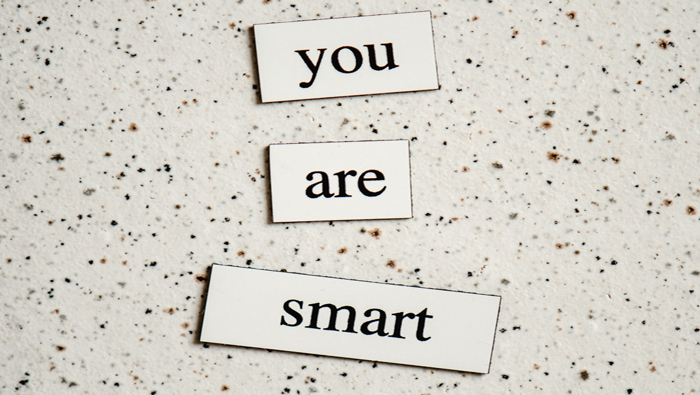
Learn more

Read an article

Learn more

Read an article

Learn more
However, what seems nice to you is not always so for the other person. Let’s imagine the following situation: a woman has been trying for a long time to achieve the figure of her dreams as she did not feel comfortable in her body and tended to avoid social gatherings. Finally, when she achieved her goal and decided to go out with friends, most people were surprised by her makeover. She received a lot of compliments, including the following one:
-‘You’ve lost so much weight, you look so much better!’
At first, the compliment made her feel better, but it reinforced her belief that things had been bad before - what could be the consequences?

By emphasising that someone had looked bad before they changed you can unintentionally cause that person a great deal of harm. In the above situation, we perpetuate the feeling that the most important success of the entire process is a more attractive physical appearance, which was previously ‘worse’. For someone who conditions their self-esteem on this factor, it will be a clear signal that this is the case. Meanwhile, we tend to forget about one of the most important factors - other people have a huge impact on shaping one’s image in one’s own eyes. If you evaluate other people’s appearance, you can reinforce the belief that being pretty is superior to more rational and constructive motivators such as health or fitness. The same will be true in many other cases, unrelated to appearance.
Well-worded and relevant praise is one of the strongest motivators. When praising someone for something, we should first of all have in mind the appreciation of the entire process. Look at someone individually, through the perspective of what they have achieved and how they did it. The more targeted and personalised compliment or praise, the greater its effectiveness. It should be sincere and thoughtful. Say something that is genuine and do it when you really feel the need to be nice. Banal compliments which are mere pleasantries or aim to avoid making someone feel uncomfortable are artificial and most people who receive them know it very well. No one would like to be treated superficially - sometimes saying nothing is a better option.
Compliments should refer to real qualities, behaviour or characteristics that you have control over or that are particularly important for you. Emphasising uniqueness and referring to specifics indicate that you actually mean a compliment when you say it. Moreover, try to briefly justify why you think something was worthy of praise - quite precisely and accurately, so that the person for whom the compliment is intended can be certain that you really appreciate the quality.
In everyday situations not every compliment will require from you to think deep and justify it. It often happens that you say something impromptu, under the influence of an impulse. You meet a friend who is beaming and spontaneously want to tell her about it, or a colleague from work has done you a small and unexpected favour, which you would also like to appreciate - so how to say something that will be really nice?
Above all, make sure your words are sincere and authentic, like the emotions accompanying you. Rather than saying ‘how slim you look’ simply say, ‘you look beautiful’ or ‘you look great’.
Sometimes, compliments may carry the opposite message. You are not always perfect, but when you invest an effort into something, you would like it to be noticed and appreciated. A compliment such as ‘Well done! You have finally managed not to be late for a meeting’ or ‘Yes, you look very good in a long tunic, it covers your massive hips very well’ will not only be unpleasant, but it will also have the opposite effect. Neither the person paying or the person receiving the complement will feel any better. If you do not intend to hide criticism under the guise of a seemingly nice compliment, it is better not to use value judgements or comparisons of this kind.
Compliments and praise are extremely important in building and maintaining good interpersonal relations. They can motivate people to further effort and also have a strengthening function. Thanks to them we can express our appreciation for other people, increase our self-esteem and strengthen our sense of self-worth. Unfortunately, inappropriately worded praise will have the opposite effect, discouraging you from investing further efforts into an activity. It can also reinforce a person’s negative self-image and take away their confidence.
So if you want to make the most of the positive power of compliments, follow the basic principle - appreciate, do not judge. Be sincere, notice particular aspects and emphasize strengths. A compliment constructed in such a way will certainly fulfil its role.
Dweck, C. The New Psychology of Success, Ballantine Books, 2007
Mangels, J. A., Butterfield, B., Lamb, J., Good, C. D., & Dweck, C. S. (2006). Why do beliefs about intelligence influence learning success? A social-cognitive-neuroscience model. Social, Cognitive, and Affective Neuroscience, 1, 75–86
Mueller, C. M., & Dweck, C. S. (1998). Intelligence praise can undermine motivation and performance. Journal of Personality and Social Psychology, 75, 33–52.
Agnieszka Bartczak, MA – employee of the Institute of Applied Psychology at the Jagiellonian University Faculty of Management and Social Communication. Her research interests include psychology of work, organisation and management, in particular professional procrastination, professional tasks and their correlation with different work regimes, job crafting, counterproductive behaviour and managing human resources in remote work.
I like
people liked this article